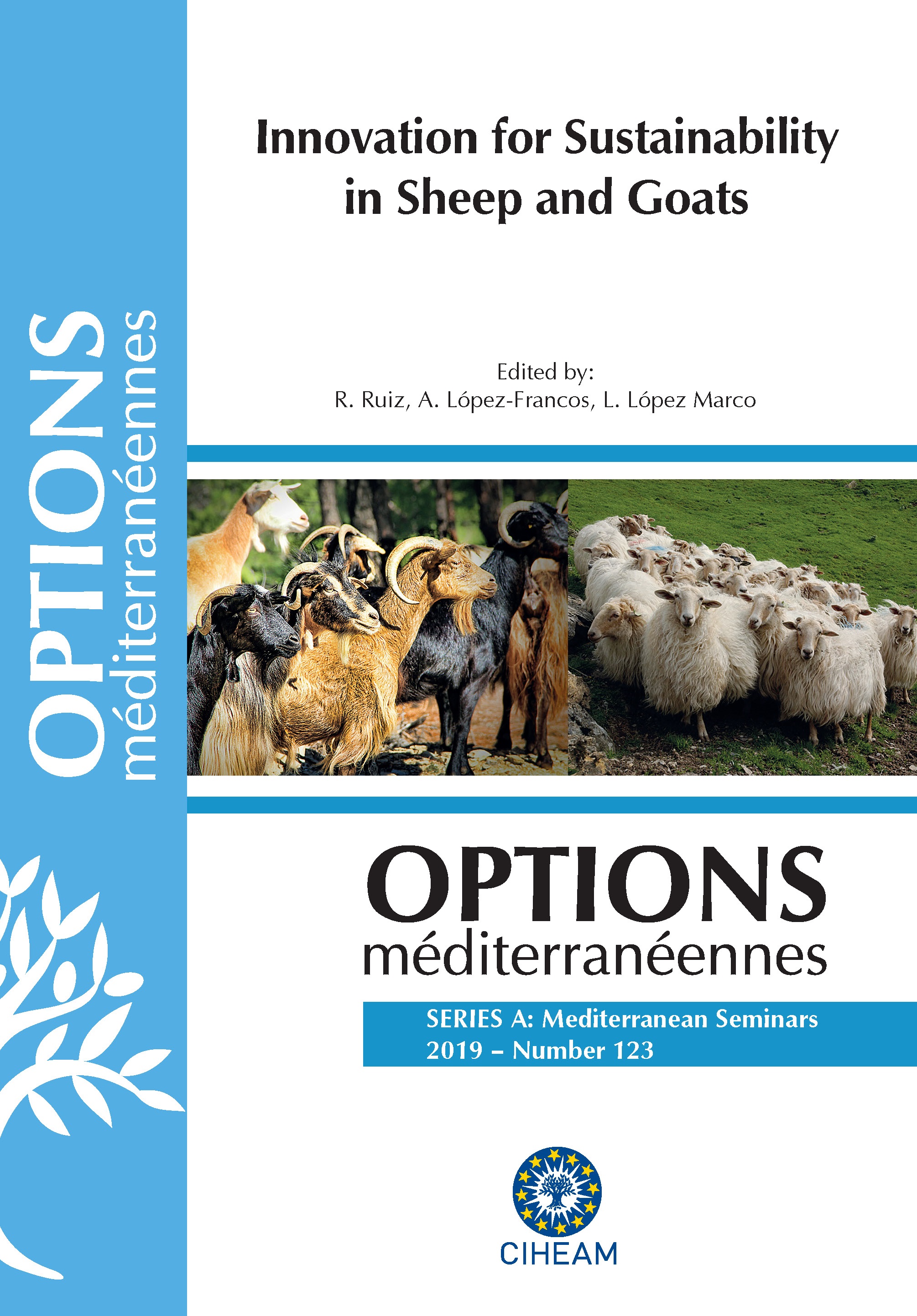| Article précédent | p. 157-162 | Article suivant |
Effect of drinking high salt water from weaning to adulthood in Barbarine male lambs
Forty adult Barbarine male lambs were used to evaluate the effect of prolonged drinking of saline well waters on growth, ruminal and digestive performances after a period of 4 months of administration. At the weaning day, animals were randomly allocated high salt water (10 g NaCl / 1l of water) or control water (potable fresh water, 0.5g/l). Animals were adapted for experimental conditions before starting the 105-day growth trial. At the end of the growth trial, animals were housed in metabolic cages for total faecal collection during 10 consecutive days. Drinking high salt water did not affect the growth performance. Only, caudal condition scores increase in S-lambs comparing to C-lambs (P<0.001). Moreover, S-lambs decreased their serum triglyceride, cholesterol, glucose, total protein, acid uric and creatinine concentrations (P<0.01). Urea and γ-GT concentrations were not affected by water salinity (P>0.05).The response of the weaned lambs in water and food intakes, in ruminal fermentation, in digestibility coefficients, in urinary excretions of total purine derivatives, allantoin, xanthine plus hypoxanthine and uric acid as well as in urine outputs and nitrogen balances were similar for both groups independently the water quality used (P>0.05).Utilization of such saline water could be used successfully and safely as good quality of water resources without compromising their feedlot performance.
- [ Afficher ]
- [ Télécharger ]
- [ Exporter la citation ]
Vous pouvez télécharger la citation au format :
- [ Imprimer ]
-
Mots-clés
AGNEAU, AZOTE, DIGESTIBILITE, EAU, EAU SALINE, FERMENTATION DU RUMENCiter cet article
Mehdi W.G., Ben Salem H. Effect of drinking high salt water from weaning to adulthood in Barbarine male lambs. In : Ruiz R. (ed.), López-Francos A. (ed.), López Marco L. (ed.). Innovation for sustainability in sheep and goats. Zaragoza : CIHEAM, 2019. p. 157-162. (Options Méditerranéennes : Série A. Séminaires Méditerranéens; n. 123). 2. Joint Seminar of the Subnetworks on Nutrition and on Production Systems of the FAO-CIHEAM Network for Research and Development in Sheep and Goats, 2017/10/03-05, Vitoria-Gasteiz (Spain). http://om.ciheam.org/om/pdf/a123/00007877.pdf



